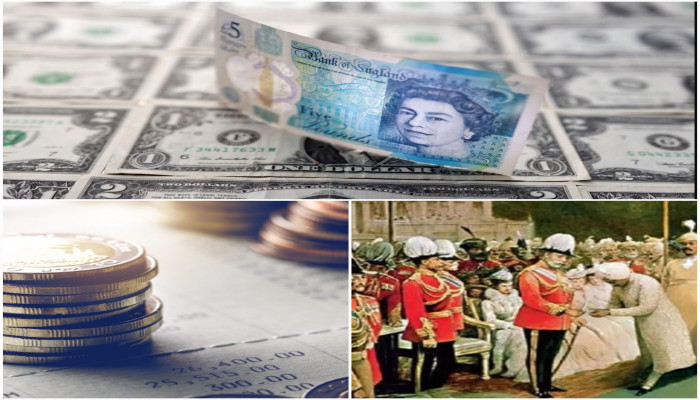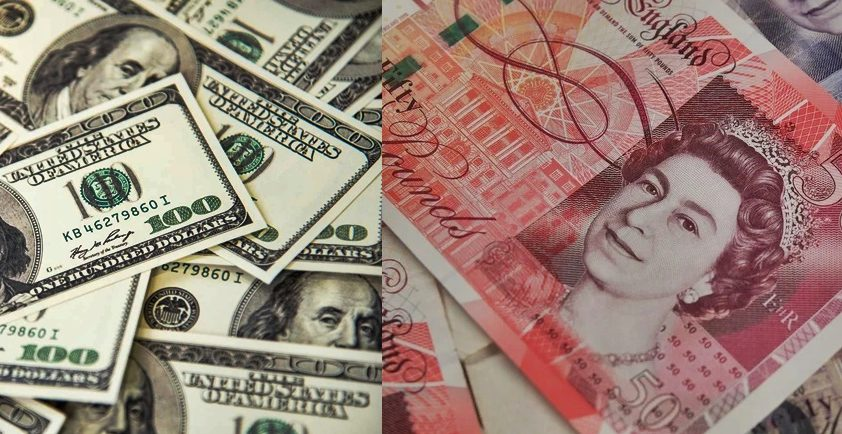A recent report from the global rights organization Oxfam International has unveiled a staggering figure—$64.82 trillion was extracted from India by the United Kingdom during its colonial rule, from 1765 to 1900.
This extraordinary amount reflects the economic exploitation that India endured under British colonialism and reveals a troubling history of wealth extraction. According to the report, a significant portion of this wealth, USD 33.8 trillion, was siphoned off by the richest 10% in the UK, perpetuating the deep socio-economic divide that still resonates today.
The findings of this report provide crucial insights into the lasting legacy of colonialism and how the modern global economic system continues to benefit from the inequities created during that era.
It paints a picture of a deeply unequal world where wealth is systematically extracted from the Global South, particularly countries like India, to enrich the wealthiest individuals in the Global North.
The Oxfam report also highlights the central role of multinational corporations, which, as the organization asserts, are an extension of the colonial systems set in place centuries ago.
The Extraction of Wealth: A Historical Overview
The British Empire’s exploitation of India was a cornerstone of its economic dominance during the colonial era. Through a combination of policies, such as the imposition of taxes, forced labor, and the extraction of raw materials, the UK systematically drained India’s resources, both human and material.
This occurred over a period of more than 100 years, with devastating consequences for the Indian population, who saw their wealth and resources funneled to Britain.
Read : Oxfam International’s Report “Takers, Not Makers”
From 1765, when the British East India Company gained control of large swathes of India, to 1900, the British systematically extracted wealth at an unprecedented scale.
Oxfam’s report argues that the total amount of money extracted from India, when adjusted for inflation, would amount to a staggering USD 64.82 trillion. The sheer magnitude of this figure is difficult to comprehend, but it helps contextualize the vast economic inequality that developed as a result of colonialism.
Read : Pakistan’s Gender Gap Index Hits Rock Bottom: Ranks 145 out of 146
Among the wealthiest beneficiaries of this exploitation were the richest 10% of the UK’s population, who collectively siphoned off USD 33.8 trillion, a figure that reveals the extent to which the British elite profited from the colonial system.
According to Oxfam, this wealth was enough to carpet the entire surface area of London with 50-pound British notes almost four times over. This vivid imagery brings to light the scale of the economic plunder that took place during the British Empire’s rule in India.
The extraction process involved a wide range of strategies, from the seizure of agricultural land and its produce to the looting of India’s gold, textiles, and other valuable resources.

British colonial policies often led to the widespread famine and destitution of the Indian population, further exacerbating the disparity between the colonial rulers and the subjugated Indian populace.
This economic exploitation was central to the functioning of the British Empire, which used the wealth extracted from India to fuel its industrial revolution and expand its global influence.
Colonialism’s Lasting Impact on Modern Global Inequality
Oxfam’s report doesn’t just focus on the past but also sheds light on the continuing consequences of colonialism in the modern world. The organization argues that colonialism laid the foundation for the deeply unequal global economic system we see today.
In the 21st century, multinational corporations, many of which have historical roots in colonial enterprises, continue to exploit workers in the Global South, particularly in countries like India.
The East India Company, for example, is cited as an early example of a multinational corporation that played a key role in the exploitation of India. Founded in the early 17th century, the company was granted extensive powers by the British Crown, enabling it to establish monopolies over trade and even wield military force.

In doing so, the East India Company not only extracted wealth from India but also imposed laws that benefited the British at the expense of the Indian population. Today’s multinational corporations, according to Oxfam, follow a similar model of extracting wealth from workers in the Global South, often in industries such as agriculture, textiles, and electronics.
These corporations operate within a global supply chain that mirrors the exploitative structures set in place during the colonial era. The modern-day export processing industries, which often rely on cheap labor from countries in the Global South, are seen as a continuation of these colonial systems.
These industries profit off the backs of workers, particularly women, who are paid meager wages and subjected to poor working conditions. Meanwhile, the wealth generated from these industries disproportionately benefits rich shareholders based in the Global North, creating a system where the wealth of the Global South is continually extracted to benefit the wealthiest individuals in the Global North.
The Role of Colonialism in the Creation of Modern Multinational Corporations
Oxfam’s report underscores a key point: the modern multinational corporation, often hailed as a driver of global economic growth and innovation, has its roots in colonialism. The East India Company, in particular, is seen as the precursor to today’s multinational corporations.
The company was one of the first entities to engage in large-scale trade across multiple regions, and its operations were backed by the British government. This model of trade, where corporations work in conjunction with powerful governments to extract wealth from colonized nations, continues to shape the structure of today’s global economy.
In today’s world, multinational corporations often occupy monopoly or near-monopoly positions, exerting enormous control over global markets. This power allows them to influence labor laws, trade regulations, and supply chains to maximize profits, often at the expense of workers in the Global South.

The exploitation of these workers, particularly women, is a direct legacy of the colonial system that sought to extract wealth from colonized nations through various forms of coercion, including forced labor and the suppression of local industries.
Oxfam’s report highlights that many of the wealthiest individuals in the UK today can trace their fortunes back to colonial enterprises, including slavery and the compensation paid to enslavers when slavery was abolished.
The report’s findings point to the way in which colonialism set in motion the processes that would later lead to the rise of modern capitalist economies, with the wealth of the Global South sustaining the economic growth of the Global North.
Modern Colonialism: A System of Wealth Extraction
While colonialism may have formally ended with the decolonization of many nations in the mid-20th century, Oxfam’s report suggests that the systems of extraction that were developed during the colonial era continue to operate today.
The global economic system, which remains largely controlled by wealthy nations, perpetuates the legacy of colonialism through the exploitation of workers in the Global South and the continued extraction of resources from these regions.
The global supply chains that exist today are a direct continuation of the colonial systems that sought to extract wealth from colonized nations for the benefit of imperial powers.

Multinational corporations, often with little regard for the welfare of local populations, continue to extract resources, including labor, from the Global South, while the wealth generated by these industries flows to the Global North.
This exploitation, Oxfam argues, has created a world that is fundamentally unequal, with the richest individuals in the world continuing to profit from the poverty and suffering of millions of people in the Global South.
In conclusion, Oxfam’s report on the extraction of $64.82 trillion from India by the UK during colonial rule highlights the long-lasting impact of colonialism on global inequality.
The exploitation of India’s wealth, carried out over more than a century, laid the groundwork for the modern global economic system, which continues to benefit the wealthiest individuals in the Global North.
Through multinational corporations, global supply chains, and systems of wealth extraction, the legacy of colonialism lives on, perpetuating inequality and division in today’s world.

